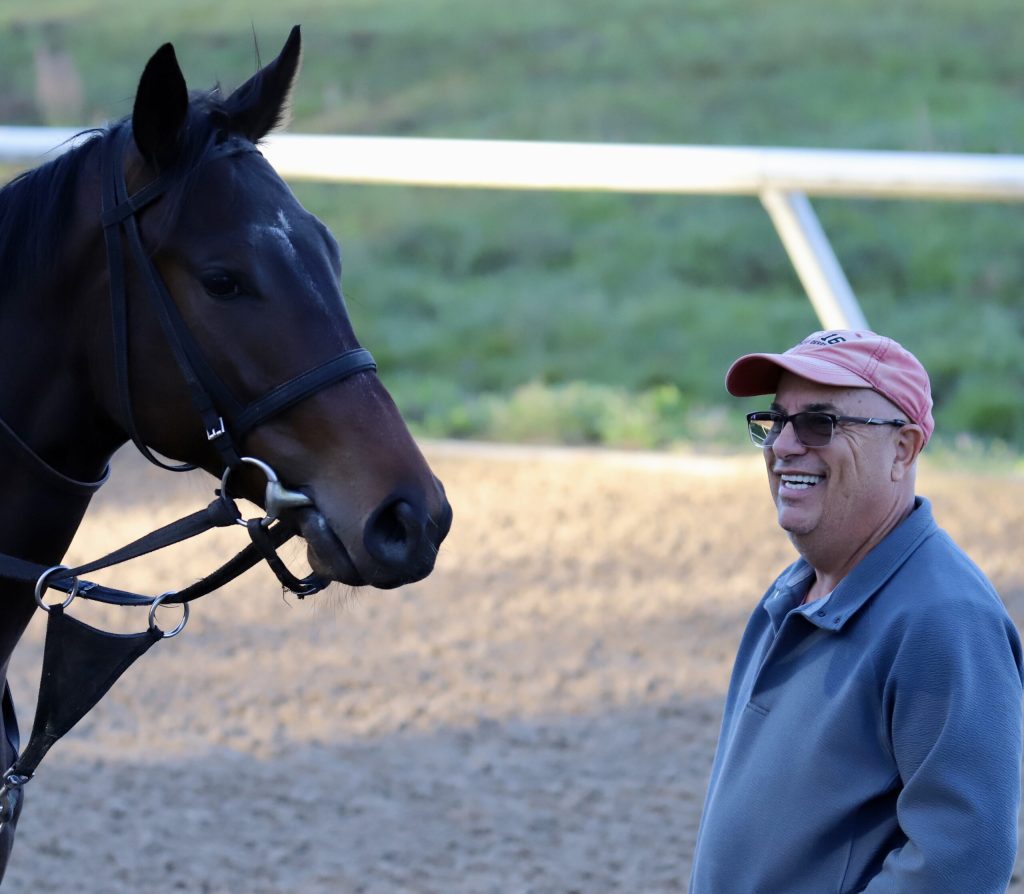BY MARK CASSE
This Op-Ed was originally published in the South Florida Sun Sentinel on March 16.
Economic Impact of Removing Live Racing Requirements
Allowing Gulfstream Park to keep its gaming licenses without the obligation to host live horse racing would lead to severe economic repercussions for Florida, offering no advantages in return.
We must protect an industry that employs over 33,000 individuals and preserves vast green areas, especially in the picturesque Ocala and Marion County. It is crucial to oppose House Bill 105 and Senate Bill 408, which aim to remove the requirement for horse tracks to conduct live races in order to operate casino games, to safeguard the welfare of our state.
The Risks to Horse Racing Operations
Every horseman involved in racing, breeding, or training runs a small business, and many of these labor-intensive operations would be jeopardized if decoupling is approved to favor a foreign corporation.
For instance, my wife Tina and I manage one of the largest racing operations in North America, with 363 horses participating in 1,284 races last year, including 401 at Gulfstream Park and Tampa Bay Downs.
At Casse Racing, we have over 200 horses in training across Ocala, Gulfstream Park, and the Palm Meadows facility. About 250 dedicated individuals, including our staff, vendors, and their families, depend on our Florida business for their income.
Job Losses and Industry Collapse
In South Florida racing alone, there are an estimated 3,500 to 4,000 racehorses, which equates to roughly 800 grooms, 650 to 700 hot walkers, 250 exercise riders, and numerous other professionals, leading to a significant number of jobs at stake.
Should legislation allow casinos without live racing at Gulfstream Park, it could trigger the collapse of the racing industry in South Florida. The market for Florida-bred horses will diminish, causing the downfall of countless horse farms in Ocala. Many individuals may be forced to leave the state for work, and we would see our Gulfstream Park horses move to racing circuits year-round in Kentucky, New York, Louisiana, or Arkansas.
The Importance of Racing Revenue
The slots operation at Gulfstream Park, which began in 2006 and generated $39 million in net revenue after state taxes last year, is a result of an agreement with horsemen and a constitutional amendment allowing local approvals for slots at tracks. The contribution of slots revenue to race purses is not a subsidy; rather, it is a vital part of the Thoroughbred industry’s ecosystem, resulting in an annual economic impact of $3.24 billion.
Florida already boasts 34 types of casinos and over 4,600 hotel properties. However, there is only one Ocala.
Significance of Marion County’s Horse Population
Marion County is home to 75,000 horses, including 34,000 Thoroughbreds, making it the largest horse population of any county in the United States and justifying Ocala’s designation as Horse Capital of the World®.
According to the American Horse Council’s 2023 economic-impact report, horses contribute 28,500 jobs in Marion County, with more than half attributed to Thoroughbreds. If decoupling legislation is enacted, although performance horses may survive, the reduction in Thoroughbred numbers and farms would severely affect the region’s veterinarians, feed stores, and businesses reliant on the horse industry.
Preserving a Family Tradition and Industry
As someone who has been connected to Ocala for 59 of my 64 years, and recognizing how beneficial horse racing has been to my life, I am not advocating for my own interests.
My son Norman is a third-generation horse trainer, and my youngest son, Colby, who aspires to be a trainer, along with his girlfriend, Taylor, who has strong family ties to the racing world, are the future I’m fighting for. This battle is about preserving Ocala and this vital Florida industry.
The Decision Facing Florida Lawmakers
It is unfathomable to me that lawmakers in Florida would support legislation that favors a relatively minor corporate entity while risking the collapse of an entire region’s way of life and a significant industry that contributes $3.24 billion annually to the economy.
If this legislation passes, Florida stands to gain very little while incurring substantial losses.
Mark Casse is a trainer based in Ocala and a co-founder of the Thoroughbred Racing Initiative, established in February to advocate for live horse racing in South Florida. He is in both the North American and Canadian racing Halls of Fame, with nearly 4,000 wins including a Preakness Stakes and a Belmont Stakes victory, alongside six Breeders’ Cup triumphs.
Decoupling: What You Need to Know: Read Now
Return to the March 20 issue of Wire to Wire



